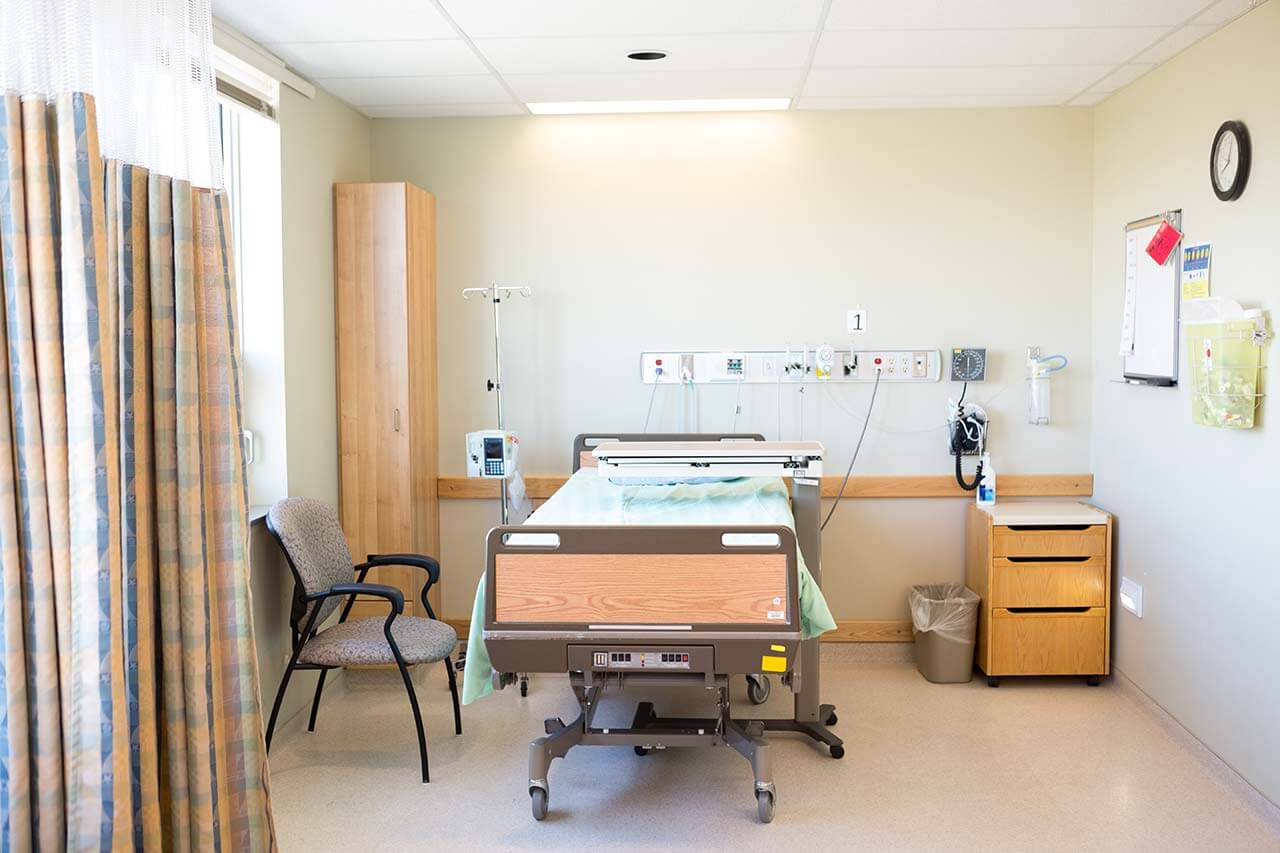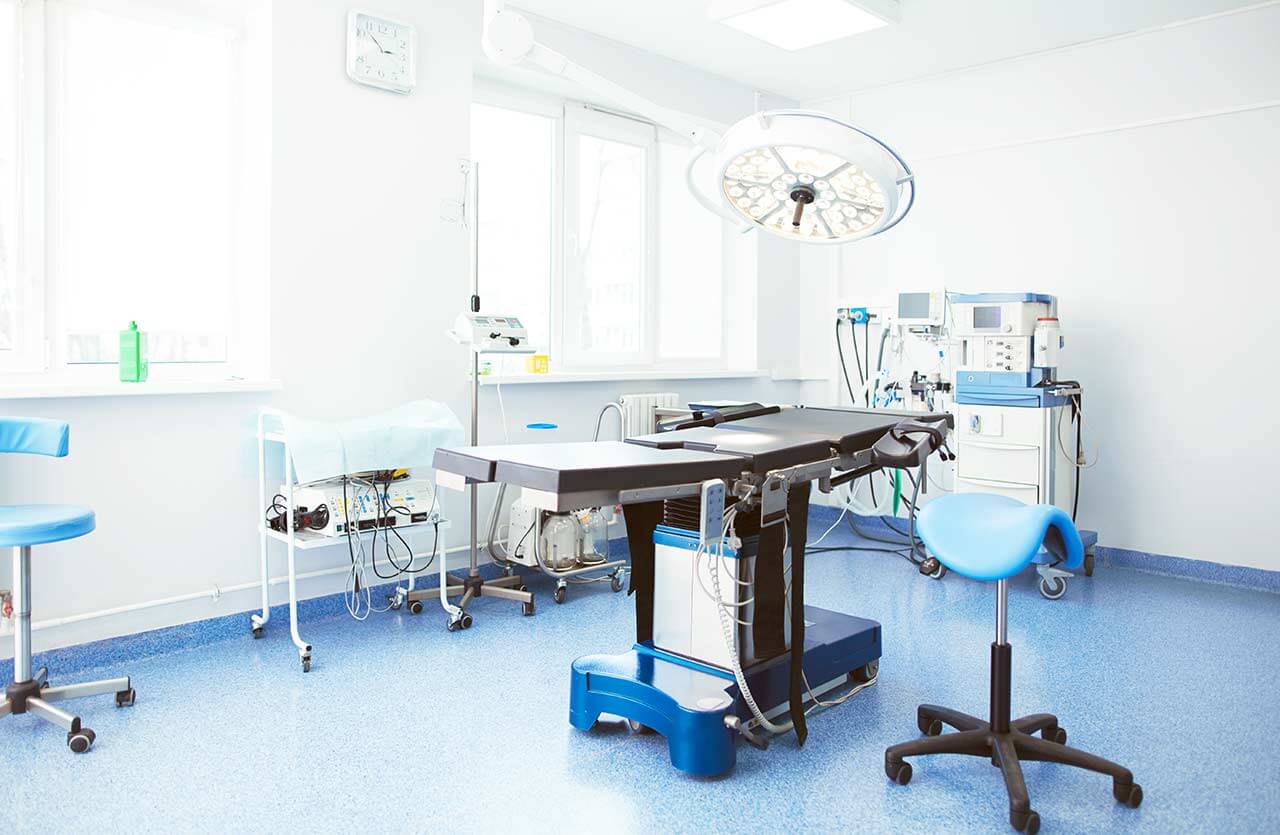
The program includes:
- Initial presentation in the clinic
- clinical history taking
- review of medical records
- physical examination
- laboratory tests:
- complete blood count
- general urine analysis
- biochemical analysis of blood
- TSH-basal, fT3, fT4
- tumor markers (AFP, CEA, СА-19-9)
- inflammation indicators (CRP, ESR)
- indicators blood coagulation
- abdominal ultrasound
- colonoscopy with biopsy
- CT/MRI abdomen
- tumor board
- preoperative care
- transanal excision of the tumor
- histologically and immunohistochemically
examination of the remote tissues - symptomatic treatment
- control examinations
- the cost of essential medicines and materials
- nursing services
- nutrition recommendations
- full hospital accommodation
- consultation of related specialists of radiology, surgery and oncology
- explanation of future recommendations
Required documents
- Medical records
- MRI/CT scan (not older than 3 months)
- Biopsy results (if available)
Service
You may also book:
 BookingHealth Price from:
BookingHealth Price from:
About the department
The Colorectal Cancer Center at the Academic Hospital Schlosspark Berlin offers the full range of highly accurate diagnostics and effective treatment of bowel cancer, as well as follow-up monitoring of patients with this diagnosis. As a rule, an individual treatment regimen is developed for each patient. It is based on the surgical resection of the tumor and the affected areas of the intestine. The experts of the center pay attention to the prevention of bowel cancer. The center offers modern screening programs to prevent the development of the pathology or detect it at the initial stages. The head of the center is Dr. med. Thomas Rost.
The bowel malignancies often develop from benign polyps. The timely detection and removal of suspicious polyps can prevent the development of a malignant process. The key risk factors include faulty nutrition with high content of saturated fats, overweight and genetic predisposition. Such diseases as familial adenomatous polyposis, Gardner's syndrome, Oldfield's syndrome and inflammatory bowel disease are also associated with an increased risk of cancer. This pathology is more common in patients over the age of 40.
As a preventive and screening examination, the patients are offered such procedures as fecal occult blood test, sigmoidoscopy, colonoscopy, CT scan, MRI, immunological and molecular tests.
If colorectal cancer is suspected, the specialists set themselves the goal to detect the exact location of the malignant process, as well as its stage. The standard diagnostic method is colonoscopy. It is worth noting that benign polyps can be removed even during the diagnostic procedure. A histological examination plays a key role in the assessment of the tumor characteristics, including the degree of its invasion and lesion of the lymph nodes, the presence of metastasis.
When performing surgical procedures for colorectal cancer, the affected part of the intestine with blood vessels and lymph nodes will be completely removed. In case of colorectal cancer, intestinal integrity can be restored by means of anastomosis. In some cases, in rectal lesion, a stoma (a surgical hole, which is formed to remove the contents of the intestine) is placed to the anterior abdominal wall.
The surgeons of the center successfully perform operations to resect intestinal neoplasms using minimally invasive techniques. Such operations are as effective as open surgery, but they allow the doctors to avoid traumatic incisions of the anterior abdominal wall and lesions of the internal organs. The minimally invasive treatment is also characterized by a less severe pain syndrome and avoids extensive blood loss, which in turn significantly reduces the period of postoperative hospitalization.
The surgical treatment is often supplemented by adjuvant therapy (drug therapy after radical surgery). For example, adjuvant chemotherapy is carried out to achieve the optimal result in the treatment of advanced stages of colorectal cancer, which are characterized by lesions of the lymph nodes or tumor invasion into the adjacent organs. The goal of this therapeutic measure is to prevent the recurrence of bowel malignancy or the spread of the malignant process to other organs, such as the liver. It is worth noting that the center uses the very latest chemotherapeutic drugs, which can successfully cure even particularly complex clinical cases.
After completing treatment, each patient will be necessarily monitored by a specialized doctor and undergo diagnostic tests (for example, ultrasound scanning, colonoscopy, laboratory tests) in order to assess general health and prevent the relapse of the disease.
The key clinical focuses of the center include:
- Prevention of colorectal cancer using effective screening programs
- Comprehensive diagnostics of colorectal cancer, including colonoscopy, sigmoidoscopy, laboratory tests, histological examinations
- Surgical treatment of bowel cancer
- Adjuvant treatment of bowel cancer (for example, adjuvant chemotherapy)
- Follow-up monitoring of patients who have had bowel cancer
- Other medical services
Curriculum vitae
Education and Scientific Achievements
- 1995 State Examination in Medicine, Free University of Berlin.
- 1997 Theoretical basis of the specialty in Emergency Medicine.
- 1999 Doctoral thesis defense on the subject: "The role of endoscopic ultrasound scanning in the diagnostics of achalasia cardia and scleroderma".
- 1999 Theoretical basis of the specialty in Radiation Protection.
- 2001 Board certification in Surgery.
- 2007 Certificate on Advanced Training in Minimally Invasive Surgery (CAMIC).
- 2008 Board certification in Abdominal Surgery.
Professional Career
- 12.1996 - 08.2000 Assistant Physician, HELIOS Clinic Emil von Behring Berlin, Department of General, Abdominal and Vascular Surgery.
- 09.2000 - 08.2001 Assistant Physician, Charite University Hospital Berlin, Campus Benjamin Franklin, Department of Trauma and Reconstructive Surgery.
- 09.2001 - 12.2001 Assistant Physician, Oskar-Ziethen Clinic Berlin, Department of Trauma Surgery.
- 01.2002 - 01.2004 Senior Physician of the Department of General, Abdominal and Vascular Surgery.
- 02.2004 - 01.2007 Leading Senior Physician of the Department of General, Abdominal and Vascular Surgery.
- 02.2007 - 08.2010 Head of the Center for Minimally Invasive Surgery in the Department of General and Abdominal Surgery, HELIOS Clinic Emil von Behring Berlin.
- 09.2010 - 12.2010 Acting Head of the Department of General, Abdominal and Minimally Invasive Surgery at the HELIOS Clinic Emil von Behring Berlin.
- Since 01.01.2011 Head of the Colorectal Cancer Center at the Academic Hospital Schlosspark Berlin.
Memberships in Professional Societies
- Working Group on Minimally Invasive Surgery (CAMIC).
- German Society of Surgery (DGCH).
- Berlin Surgical Society.
- German Society of Abdominal Surgery (DGVC).
Photo of the doctor: (c) Schlosspark-Klinik GmbH
About hospital
The Schlosspark Hospital Berlin began its work in 1970 and, during this time, has gained an excellent reputation not only in Germany but also in the international medical arena. The Schlosspark Hospital Berlin is an academic hospital of the Charite University Hospital Berlin, which is one of the best medical centers in Europe and throughout the world. The successful clinical practice of the medical facility is based on an advanced medical and technical base, access to the very latest and most effective treatment methods, and the exceptional competence and experience of medical personnel. The hospital is located in the picturesque Charlottenburg Park, away from the hustle and bustle of the city, which contributes to the peace of mind of patients.
The hospital's bed fund includes 340 beds. Structurally, the hospital consists of 12 specialized departments with narrowly focused centers integrated into them, which are responsible for the treatment of a particular group of diseases. More than 14,000 patients are treated annually at the hospital. One of the priorities of the medical facility is emergency medical care. With an annual number of more than 10,000 surgical interventions, including operations of high complexity, the department is particularly interested in surgical treatment.
The hospital's medical team consists of more than 900 employees. The departments at the hospital are headed by professors who are well-known in the medical community and have impressive clinical experience and outstanding professional achievements. In the course of diagnostics and treatment, an individual approach is used for each patient, and his needs and wishes are also taken into account. The hospital pays due attention to patient care during the therapeutic process. Despite state-of-the-art medical equipment and the automation of many processes, a humane and respectful attitude towards the patient is the first priority for the doctors at the hospital. The specialists are always open to dialogue and do their best to achieve the best treatment outcomes.
Photo: (с) depositphotos
Accommodation in hospital
Patients rooms
The patients of the Schlosspark Hospital Berlin live in comfortable rooms with light colors. Each patient room has an ensuite bathroom with a shower and a toilet. The standard patient room includes a comfortable automatically adjustable bed, a bedside cabinet with a pull-out table, a wardrobe, a table and chairs for receiving visitors, a telephone, and a TV. Wi-Fi is available on the territory of the hospital. The hospital also offers enhanced-comfort rooms with a more exquisite design.
Meals and Menus
The patient and their accompanying person are offered three meals a day: breakfast, lunch, and dinner. A new menu is prepared for patients each week. Only high-quality and fresh products are used for cooking meals. The menu includes dietary and vegetarian dishes. The patient will be offered an individual menu if necessary.
There is a cozy cafe on the ground floor of the hospital that serves full breakfasts, a wide range of hot and cold drinks, delicious desserts, and snacks.
Further details
Standard rooms include:
Accompanying person
The accompanying person may stay with you in the patient room or at the hotel of your choice during the inpatient program.
Hotel
You may stay at the hotel of your choice during the outpatient program. Our manager will help you choose the best option.




